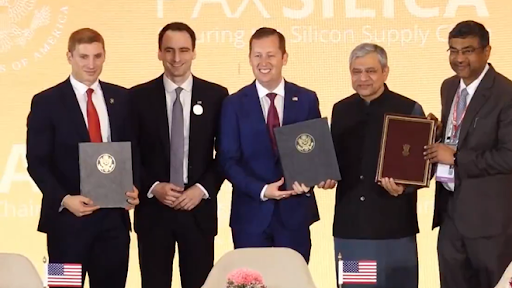





Copyright infringement not intended
Context: Saudi Arabia is set to introduce a new law for migrant domestic workers (MDWs) in September 2024, to improve their working conditions.
|
Saudi Arabia ●It is bordered by the Red Sea to the west, Jordan, Iraq, Kuwait to the north, the Persian Gulf, Bahrain, Qatar, the United Arab Emirates to the east, Oman to the southeast, and Yemen to the south. ●The Gulf of Aqaba separates Saudi Arabia from Egypt and Israel. ●Rub' al Khali located in the southeastern part, is the world's largest contiguous sand desert. ●It is the world's third-largest oil producer and controls the world's second-largest oil and gas reserves. |
 |
Key Features of the New Law
|
Migrant Domestic Workers in Saudi Arabia As of early 2024, Saudi Arabia employs approximately 3.9 million migrant domestic workers, with a significant proportion being Indian. The key challenges they face include: ●Low Wages: Many workers are paid below the minimum wage, and overtime is often unpaid. ●Lack of Protection: The exclusion of MDWs from labour laws means there are gaps in protection, including insufficient oversight of wages and working conditions. ●Recruitment Regulations: Indian workers are recruited through the eMigrate system and are subject to a minimum referral wage. However, consular support is often limited, focusing mainly on repatriation rather than ensuring workers' rights and entitlements. |
Challenges with the Current System
|
The Kafala System The Kafala system is an employer-tied visa system that exacerbates the vulnerability of migrant workers: ●Control by Employers: Workers are dependent on their employers for visa status, which can lead to extreme exploitation as employers have significant control over their workers' lives. ●Recruitment Costs: Employers often pay high recruitment fees (between $2,000 and $5,000) and may treat workers as if they have ‘bought’ them, rather than as individuals providing services. ●Bonded Labor: The combination of Kafala and the lack of labour law protections creates conditions akin to bonded labour, where workers face severe restrictions and exploitation. |
Conclusion
Must Read Articles:
India-Saudi Arabia Strategic Partnership Council
Source:
|
PRACTICE QUESTION Q. How many of the following countries share a land border with Saudi Arabia? 1. Iraq 2. Jordan 3. Yemen 4. Oman 5. Egypt Select the correct answer using the codes given below: A) Only two B) Only three C) Only four D) All five Answer: C |




© 2026 iasgyan. All right reserved